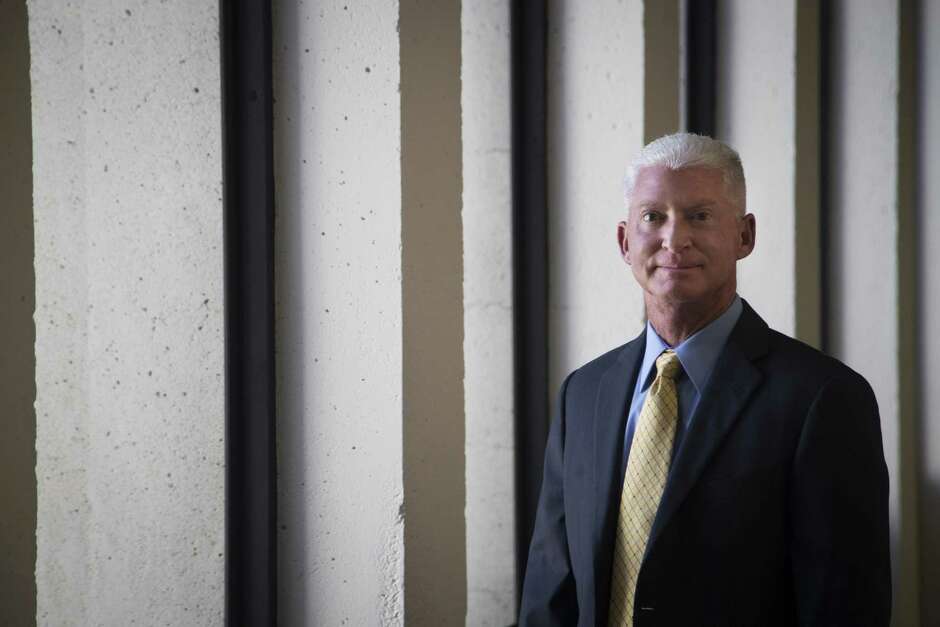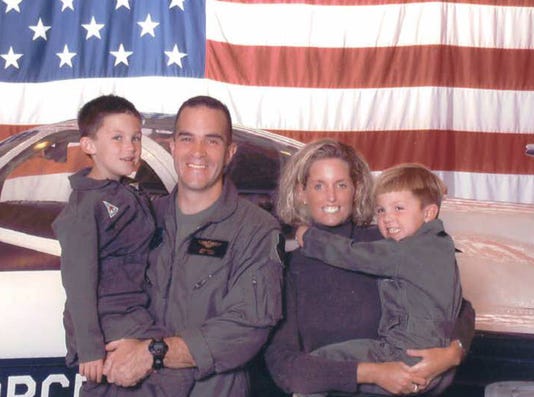March 13 -15
Baton Rouge, LA
Registration information [HERE].
Sunday, January 13, 2019
Monday, January 7, 2019
Hostage negotiation skills provide lessons for the boardroom
Suzanne Williams, a former British police hostage negotiator, scans a room of young professionals gathered for her evening masterclass on how to negotiate at work. “You seem like a lovely group of women but I would be far more in my comfort zone speaking to a load of evil kidnappers,” she says candidly.
After three decades as a police officer at Scotland Yard, latterly becoming the first ever female head of the force’s hostage crisis unit, Ms Williams is still adjusting to civilian life. In the police force she specialised in kidnappings, sieges, domestic barricades, suicide prevention and what she calls “crimes gone wrong”, such as bank robberies.
“You need to be well-prepared, whether you’re talking to some terrorists on Iraq or going into a big meeting.”Read more from FT.com [HERE].
Friday, January 4, 2019
A Smarter Way to Recover Hostages
The U.S. strategy of refusing to negotiate with terrorist kidnappers endangers American lives for no good reason
Should governments ever pay ransom to terrorists who take hostages? The question divides experts and politicians. Spain and Italy have a reputation for being willing to pay whatever it takes to bring their citizens home, while the U.K. and the U.S. don’t pay and in some cases don’t even negotiate. As a result, many British and American hostages have been killed by their captors. In 2014, for instance, ISIS murdered its American and British hostages—including the journalists Jim Foley and Steven Sotloff—while cutting a deal for its European captives.
In order to keep ransom payments down, governments that choose to pay should hide their involvement from the hostage-takers...
The no-concessions countries ask their citizens to make this sacrifice because, they believe, to do otherwise would encourage more kidnapping and funnel resources to terrorists that would be used to finance future attacks. And it is true that, if no one ever paid a ransom for a hostage, the economic logic of the crime would be undermined.
But in the real world, that will never happen.
Read more via Joel Simon/WSJ [HERE].
Tuesday, January 1, 2019
Ex-NYPD hostage negotiator to bring conflict management advice to Sussex
“What I do is I offer conflict management training. Hostage negotiation or critical incident management or crisis invention, these are extreme examples. But what they involve are active listening skills, rapport-building,” Shanahan said.
During his time in the Big Apple, Shanahan served as a hostage negotiator and senior instructor. In total, he taught over 100,000 different police officers. Since retiring after over 36 years with the NYPD, Shanahan has started Keisatsu Dojo, an LLC that focuses primarily on providing conflict management courses.
Read more from JSONLINE [HERE].
Thursday, December 6, 2018
December Newsletter
Hello all,
Here's the latest edition of the newsletter. First, happy holidays to everyone. Regardless of what you celebrate (or don't), I'm sending my best to everyone.
The holidays can also though be a tough time for some - especially law enforcement personnel and others working in crisis incidents. Make sure you look after yourself. You matter.
Take a moment to check out some resources [HERE]. For example, did you know that the great organization, Crisis Text Line, has set up a special keyword specific for law enforcement officers in a personal crisis? By texting BLUE to 741741 (U.S. only), you'll be connected to a crisis counselor that will only know you are a law enforcement officer somewhere in the U.S. needing a bit of help. It's 24/7, free, and confidential.

Moving along, there's plenty of information (as usual!) in this month's newsletter. I'll update the calendar next month for 2019 trainings. I'm also working on some interesting research that can also serve as a way for your teams to stay sharp with their skills. I'll share more next month but as a preview, one study includes a terrorism element while another is regarding texting.
Wednesday, December 5, 2018
Recommended Books (Not Crisis Negotiation Related)
Part of having a self-care plan in place is being able to step away from the world of crisis. For me, reading is part of that process. As we are in the midst of the holidays, here are a few non-crisis related books that I recommend (yes, I have read them!).
Moonwalking with Einstein: The Art and Science of Remembering Everything
Sunday, December 2, 2018
Q&A: Kidnapping and extortion: Just another day at the office
 |
| Michael A. Guidry is the founder of Guidry Group, a company established in 1985. The Guidry Group is a security services company. Tuesday, April 17, 2018, in Houston. ( Marie D. De Jesus / Houston Chronicle ) |
In an ideal world, no one would need the Guidry Group, an international kidnap and ransom, security services and crisis management company. In the actual world, the Guidry Group has resolved more than 70 kidnappings and 40 extortion cases. Its Crisis Management Team tackles an ever-growing number of global threats and emergencies such as terrorism, state-sponsored violence, cyberattacks and natural disasters.
Q: How did you get involved in kidnap and ransom?
A: My kidnap and ransom training began while I was a state trooper in Texas. I loved negotiating in hostage situations, so I put myself through training, not only in the U.S. but around the world. I continued training while at the international company — and still train today. This helps me stay current with the ways kidnappings and extortions can happen. Methods of payment, items requested for negotiations and more continue to change. My skills have to change with them.
Q: Do you have any special “tricks” to save kidnap victims?
A: Basically, we take over the situation and do the negotiations. I don’t know if I’d call our techniques “tricks.” We try to get into the perpetrators’ minds and determine what they really want. Experience is important, as is learning the “do’s” and “don’ts,” and doing more of the “do’s.” Keeping our clients — not happy, because they won’t be happy — but satisfied, is important.
Read more [HERE].
Saturday, December 1, 2018
After a suicide, here’s what happens to the people left behind

Loss survivors – the close family and friends left behind after a suicide – number six to 32 for each death, according to the Centers for Disease Control and Prevention, meaning that in 2017 alone, as many as 1.5 million people unwillingly became part of this group.
They are forced to cope with the loss of a loved one and navigate uncertain futures, often caring for confused children as they struggle to accept they may never know "why."
"After his death, I cannot say that I was suicidal, but I can remember being in so much emotional pain that I would think, 'I really don’t want to wake up,'" Ruocco said. "Because you can’t figure out how to live your life with this kind of grief."
Read more [HERE].
Friday, November 30, 2018
Understanding Psychosis
#Psychosis is s set of symptoms that impacts a person's thoughts and behaviors. A common experience is losing touch with reality. It can affect people of all ages, races, ethnicities, genders and cultures.
Check out this short video to learn more:
Check out this short video to learn more:
#Psychosis is s set of symptoms that impacts a person's thoughts and behaviors. A common experience is losing touch with reality. It can affect people of all ages, races, ethnicities, genders and cultures. Watch the video from #ThriveNYC to learn more https://t.co/w1DwUYZJNg pic.twitter.com/xGQ8EteEz6— Talk To Me (@TalkToMe) November 26, 2018
Friday, November 23, 2018
C-K officers learning skills to de-escalate crisis situations
There were some hostage situations at a local hotel in Chatham on Thursday that Chatham-Kent police officers had to deal with, but there was no danger to the public.


There were some hostage situations at a local hotel in Chatham on Thursday that Chatham-Kent police officers had to deal with, but there was no danger to the public.
These scenarios involving actors is part of a five-day crisis negotiators course local officers are taking in Chatham, along with officers from Niagara Regional Police.
...Const. Fraser Curtis, an experienced negotiator, who is being re-certified, said crisis negotiation is a “perishable skill and obviously something that’s needed on the road from time-to-time when a call comes through where somebody’s in crisis.”
Tom Hart, president of Canadian Critical Incident Inc., with 20 years experience as a crisis negotiator with Durham Regional Police, is a course instructor.
“These type of people when they suffer these mental illnesses they’re in a state of crisis,” Hart said. “It’s really important for the officers to recognize those illnesses and develop a negotiating strategy to defuse, de-escalate and negotiate.”
Listening and de-escalating are key to successful negotiation, he said, followed by communicating clearly to the individual how resources will be used to resolve the situation.
Read more [HERE].
Tuesday, November 20, 2018
How to Control Your Emotions During a Difficult Conversation

It’s hard not to get worked up emotionally when you’re in a tense conversation. After all, a disagreement can feel like a threat. You’re afraid you’re going to have to give up something — your point of view, the way you’re used to doing something, the notion that you’re right, or maybe even power – and your body therefore ramps up for a fight by triggering the sympathetic nervous system. This is a natural response, but the problem is that our bodies and minds aren’t particularly good at discerning between the threats presented by not getting your way on the project plan and, say, being chased down by a bear. Your heart rate and breathing rate spike, your muscles tighten, the blood in your body moves away from your organs, and you’re likely to feel uncomfortable.
Focus on your body. Sitting still when you’re having a difficult conversation can make the emotions build up rather than dissipate. Experts say that standing up and walking around helps to activate the thinking part of your brain. If you and your counterpart are seated at a table, you may be hesitant to suddenly stand up. Fair enough. Instead, you might say, “I feel like I need to stretch some. Mind if I walk around a bit?”
If that still doesn’t feel comfortable, you can do small physical things like crossing two fingers or placing your feet firmly on the ground and noticing what the floor feels like on the bottom of your shoes. Mindfulness experts call this “anchoring.” It can work in all kinds of stressful situations. For example, for a long time I was afraid of flying, but I found that counting while touching each of my fingers with my thumb helped to get me out of my rumination mode.
Read more and get all of the tips [HERE].
Saturday, November 17, 2018
'Very tense and very stressful': Crisis negotiators play pivotal role in recent standoffs with police
Winnipeg Police Service’s crisis negotiation team involved in several high-profile calls in last 3 weeks
The Winnipeg Police Service's crisis negotiation unit has dealt with several high-profile incidents over the past few weeks, including four armed and barricaded situations — two of those involving firearms.
"No two calls are going to be the same. Obviously, the deployment sort of ramps up your level of anxiety," said unit commander Staff Sgt. Sean Pollock.
"Really, you're just trying to establish communication. You're allowing that individual to express and vent," said Pollock.
Read more [HERE].
Wednesday, November 14, 2018
FBI Hostage Negotiation Tactics You Can Use Every Day
We have all read and trained on some of these techniques, but how many of us actual practice them and use them? Have a look...
Try the mirroring technique.
When in a negotiation it's crucial to get as much information out of the other side as possible. Voss explains that by "mirroring" them and simply repeating three to five keywords in their last sentence, people are forced by nature to repeat themselves in a way that gives more information and clarifies their points. An example:
Person 1: To get someone to tip their hand and clarify, simply repeat the last three to five keywords in their sentence.
Person 2: You repeat the last keywords?
Person 1: Yeah, pretty crazy right? What that does is it causes me to explain my point again from a different angle, revealing more information that could be extremely valuable and also it helps you decipher my true desired outcomes and motivations.
Voss notes it feels extremely awkward when you are doing the mirroring, but insists that the other person almost never notices and actually feels listened to. Voss refers to this as the negotiation "Jedi Mind trick" as he says it works every time and no one knows you're doing it.
Read more [HERE].
Monday, November 12, 2018
Manukau mall siege: Woman held hostage speaks of her horror

She said the man kept telling her quietly he didn't want to hurt her.
She said the man kept asking for his sister.
Wheeler said there were plenty of police officers facing off with the man, many who had drawn weapons.
However, only one spoke, a negotiator who Wheeler said did an "outstanding" job.
She said the negotiator told the man he could see his sister when he went back to the police station with them.
Read the full story and watch video footage at the NZ Herald [HERE].
Subscribe to:
Posts (Atom)




